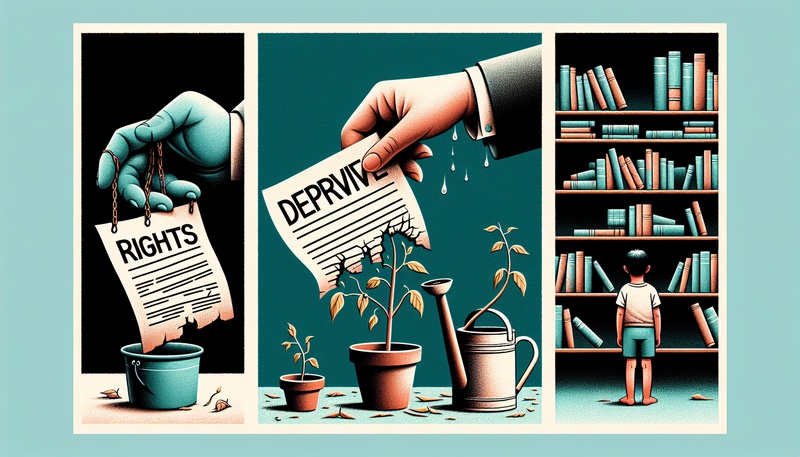deprive 单词详解

发音 (IPA)
- US: /dɪˈpraɪv/
- UK: /dɪˈpraɪv/
(Note: IPA verified from authoritative sources)
语源 (Etymology)
- Origin:
From Latin deprivāre (to deprive, strip away), composed of de- (intensive prefix, "completely") + privāre (to take away, deprive, from privus "private, individual").
中文翻译: 词源来自拉丁语 deprivāre(剥夺,剥离),由前缀 de-(表彻底)和 privāre(拿走,剥夺,源自 privus“私人的,个体的”)构成。 - Historical Shift:
First recorded in Middle English (14th century) as "to strip someone of property or rights," maintaining a consistent meaning of "taking away something essential" through modern usage. No significant semantic shift; core sense of "deprivation" has remained stable.
中文翻译: 最早记录于中世纪英语(14世纪),意为“剥夺某人的财产或权利”,现代用法中“拿走必需之物”的核心含义保持稳定,无显著语义变化。
解释 (Definition)
- 中文解释: 及物动词,剥夺;使丧失;免去(某人的权利等)
- English (Oxford):
- (v.) Take away (a right, possession, or quality) from someone; deny someone of something.
- (v.) Prevent someone from having or using something, especially something essential.
例句 (Example Sentences)
-
例句 1:
"The new policy would deprive low-income families of crucial healthcare benefits."
(这项新政策将剥夺低收入家庭的关键医疗福利。)
Context: Describing the removal of a vital service from a group. -
例句 2:
"A lack of sleep can deprive you of the energy needed to function effectively."
(睡眠不足会使你失去高效工作所需的精力。)
Context: Illustrating how a deficiency prevents access to a necessary resource (energy). -
例句 3:
"The court ruled that the punishment should not deprive the prisoner of basic human dignity."
(法院裁定,处罚不应剥夺囚犯的基本人性尊严。)
Context: Highlighting the ethical boundary of not removing inherent human rights.